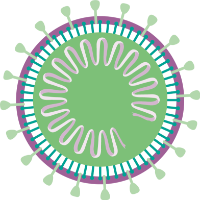Triplex, a viral vectored CMV vaccine for transplant indications: clinical trial updates
Vaccine Insights 2023; 2(7), 287–308
DOI: 10.18609/vac/2023.042
Cytomegalovirus (CMV) is a serious complication that increases mortality after solid organ (SOT) or allogeneic hematopoietic cell transplantation (HCT). Immunocompromised patients, including transplant patients, are often unable to mount an effective immune response to contain CMV infection, controlling viral reactivation. There is an unmet need to develop effective therapeutics associated with favorable safety profiles, compared with antiviral therapies for the prevention of CMV end-organ disease and clinically significant CMV viremia after transplant. At City of Hope, our team focused on developing a safe and effective CMV vaccine by using the attenuated vaccinia strain, modified vaccinia Ankara (MVA), genetically modified to express CMV genes. MVA has been investigated as prophylaxis against smallpox and has been approved in the USA and Europe for the prevention and treatment of mpox (monkeypox). This well-established platform for viral vector vaccine development has ample capacity for multiple transgene inserts. Furthermore, it showed an excellent record of tolerability and immunogenicity in immune-suppressed patients and transplant recipients. Based on these multifaceted favorable properties and clinical need, we designed Triplex, an MVA vectored vaccine encoding three immunodominant CMV antigens involved in protective immunity: pp65, IE1-exon4, and IE2-exon5. The purpose of the Triplex vaccine is to rapidly increase CMV-specific T cells after transplant and prevent clinically significant CMV viremia, requiring toxic antivirals. This Expert Insight article presents an integrated overview of Triplex vaccine development pathway from early in vitro experiments to pre-clinical testing, manufacturing, production of the clinical lots for first-in-human studies, and pilot and efficacy trials in the transplant setting.
